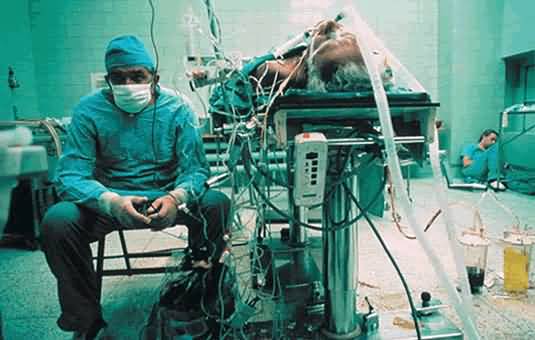“It’s not stress that kills us, it’s our reaction to it.”
―Hans Selye, Hungarian-Canadian endocrinologist, author of “The Stress of Life”
Let’s see.
Michael DeBakey died 2 months short of 100,
Denton Cooley was 96,
Francis Robicsek – 94,
Domingo Liotta – 97,
Viking Björk – 90,
Alan Carpentier, alive at 89,
Thomas Fogarty, alive at 88,
Dwight Harken was 83,
Norman Shumway 83,
Vincent Gott died at 93,
Alex Haller died at 91,
William Longmire at 89,
Starr alive at 96,
Frank Spencer died at 92.
All these names are well known to every cardiac surgeon in this country, and beyond. They are pioneers, luminaries and icons. They are the giants who on their shoulders lifted cardiac surgery in the 20th century to the level never heard of in the history of our civilization. The heart, a previously untouchable organ, has become one of the most commonly surgically treated parts of a human body. Right in time for the epidemics of heart diseases.
How stressful was their job? Well, let me tell you.
They worked day in, and day out. They didn’t get home until their surgical patients became stable. Their operations were long. Often lasting 10 hours, sometimes longer.
The results of the surgeries were unpredictable. The patients dying on the operating table weren’t uncommon, so were the deaths in the ICU.
The pediatric cases had initially particularly poor outcomes, and seeing a dead child under your care is always an agonizing experience.
The standards for delivering the cardiac surgical care were different. Most of them tried their innovations in a hospital dog labs, which were quite common part of the better surgical programs. My two uncles worked as attendants in one attached to the Warsaw Medical University in the 1930ies.
The ethical issues with doing the experimental procedures on their patients were not yet well codified. Some of the issues had to be solved in a court of law.
As you can see, the level of stress was enormous. Acuity of cases, long hours, little or no sleep. Their chosen path of life was mentally and physically grueling. I know, I was trained by Dr. Francis Robicsek, one of the giants.
They dealt with the lifestyle in different ways. But this didn’t influence their longevity.
The satisfaction with the job of cardiac surgery is high.
Here is the data from ATS 2019 Workforce STS report:
https://www.annalsthoracicsurgery.org/article/S0003-4975(20)30561-0/fulltext
54.1% were satisfied with their career, however 55.7% had symptoms of burnout and depression. Women constituted only 8.4% of responders.
Are cardiac surgeons happy?
4.5 out of 5 stars.
I always wanted to be a cardiologist. Then my mentor in Warsaw Medical school, prof. Jan Nielubowicz, changed my mind. He said your job satisfaction will be higher when you will become a cardiac surgeon. He said you will see the results of your work faster. Later I found out he meant the good results as well as the bad ones. And I’ve learned how high were the good ones, and how high were the bad.
With this blog, I want to announce the line of my posts about the luminaries of cardiac surgery in the past century. They all were exceptional individuals. Highly motivated, well, educated, loved their calling. Were these the traits letting them live into their 90ties?
It’s my opinion that all these high achievers were gifted with a unique response to stress. Their tolerance level was unusually high, and they were able to use stress to motivate them, rather than to destroy them.
Let’s see, if I will be able to prove it.


